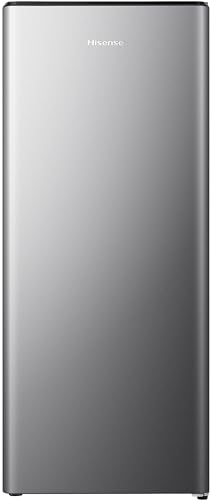Understanding Refrigerators: A Comprehensive Guide
Refrigerators, frequently referred to as fridges, are essential home appliances in modern families and commercial establishments. They play a crucial function in maintaining food and beverages, guaranteeing they remain fresh and safe for consumption. For many years, developments in technology have transformed the humble fridge into an advanced home appliance that comes equipped with various features and functionalities. In this article, we will explore the various kinds of refrigerators, essential functions to think about when buying one, and maintenance ideas to extend its life expectancy.
Types of Refrigerators
When it concerns fridges, there is a plethora of options offered in the market. Cheap Fridges For Sale deals with various requirements and preferences, making it essential for customers to comprehend their qualities. Below is a summary of the primary types of refrigerators:
| Type | Description | Pros | Cons |
|---|---|---|---|
| Top-Freezer | A conventional design with a freezer compartment above the refrigerator area. | Affordable, familiar design | Restricted storage area for fresh food |
| Bottom-Freezer | Features a freezer compartment situated at the bottom for simpler access to fresh food. | Ergonomic style, more fresh food space | Freezer may need bending to access |
| Side-by-Side | Split vertically, with the freezer on one side and the refrigerator on the other. | Convenient access to products, adequate storage space | Narrow storage bins |
| French Door | Integrates a bottom freezer with double doors for the refrigerator area, using versatility. | Elegant design, easy access to foods | Greater price point |
| Compact Fridge | Smaller sized systems developed for restricted spaces such as dormitory spaces or offices. | Space-efficient, portable | Minimal storage capability |
| Smart Fridge | Geared up with Wi-Fi connectivity and touch screens, allowing users to manage groceries digitally. | High-tech features, energy-efficient | Costly and might need updates |
Key Features to Consider
When buying a refrigerator, it's vital to assess specific features to guarantee it fulfills your requirements. Here are essential aspects to think about:
Size and Capacity
- Guarantee the fridge fits your kitchen area space.
- Think about the overall capability based upon your home requires.
Energy Efficiency
- Search For ENERGY STAR rankings to make sure energy performance, which can save money on electrical energy expenses.
Cooling Technology
- Inspect if the fridge utilizes conventional cooling, dual cooling, or advanced technologies like inverter compressors for better efficiency.
Storage Options
- Evaluate shelving versatilities, crisper drawers, and adjustable compartments for efficient storage and company.
Finish and Design
- Pick a finish (stainless steel, matte, etc) that matches your kitchen design. Remember to consider the general style, whether sleek or traditional.
Smart Features
- Think about smart fridges if you desire features like temperature level control through an app, inventory tracking, and alerts when the door is left open.
Upkeep Tips for Refrigerators
Correct upkeep can significantly extend the life of a refrigerator. Here's a list of crucial upkeep practices:
- Regular Cleaning: Keep the interior clean and devoid of spills and expired products. Month-to-month cleansing is advised.
- Inspect Temperature Settings: Ensure the refrigerator is set in between 35 ° F and 38 ° F, while the freezer should be at 0 ° F to preserve food safety.
- Tidy Condenser Coils: Dust and debris can collect on the coils, decreasing performance. Cleaning them every 6 months is suggested.
- Inspect Door Seals: Regularly inspect the door gaskets for wear and tear. An excellent seal is crucial for maintaining temperature.
- Defrosting: In older models, defrost the freezer routinely to prevent ice accumulation. Some modern fridges come with auto-defrost features.
- Keep Vents Unobstructed: Ensure air flow is not obstructed by items, which can hinder cooling performance.
- Screen Food Storage: Properly shop foods and avoid straining the fridge, which can limit airflow.
Often Asked Questions (FAQs)
How long do refrigerators generally last?
- Many refrigerators last in between 10 to 15 years, depending upon the model and maintenance.
What can I do to keep my fridge running effectively?
- Routine cleaning, examining temperature settings, and maintaining appropriate ventilation can improve performance.
Is a smart fridge worth the financial investment?
- If you typically cook, captivate, or require advanced functions such as remote temperature control and stock tracking, the financial investment may be rewarding.
Can my refrigerator cause high electricity expenses?
- Ineffective models, poor upkeep, or leaving the door open can lead to increased electricity intake.
What's the difference in between a top-freezer and a bottom-freezer model?
- A top-freezer fridge has a freezer area above the fridge, while a bottom-freezer model has a freezer drawer at the bottom for ease of access to fresh food.
Refrigerators are indispensable in contemporary kitchens, serving not just as storage for perishables however likewise showing developments in innovation and convenience. With the myriad options available, understanding the types, features, and maintenance can empower customers to make informed choices. Proper care can guarantee that a fridge remains effective and practical for years, ultimately enhancing the general food storage experience in the home. Whether choosing an elegant French door model or a compact fridge for a studio apartment, customers today are equipped with the knowledge to pick the ideal appliance for their requirements.

